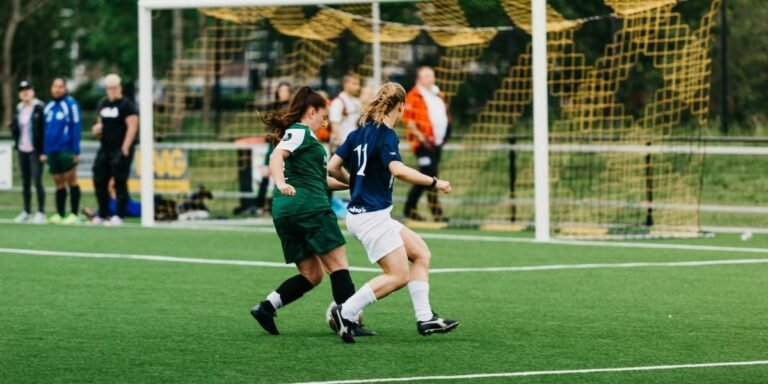Downtown Portland is experiencing a long-awaited resurgence, with foot traffic returning to pre-pandemic levels and signaling a renewed sense of energy across the city’s core. After years of uncertainty, closures, and shifting work habits, the sidewalks of downtown Portland are once again bustling with locals, tourists, and remote workers seeking connection, culture, and commerce.
This recovery is not accidental. It’s the result of strategic urban planning, business expansion, and community-driven efforts to reimagine what downtown Portland can be. From revitalized retail corridors to expanded dining options and cultural programming, the city is proving that resilience and innovation go hand in hand.
Downtown Portland’s Foot Traffic Recovery in Numbers
Recent data from the Portland Bureau of Transportation shows that pedestrian counts in downtown Portland have climbed steadily over the past year. In August 2025, foot traffic reached 98% of its 2019 levels, with over 12,000 daily pedestrians recorded across key intersections like SW Morrison and 10th Avenue.
Retail districts such as Pioneer Place and the Pearl District have seen a 30% increase in weekday visitors compared to the same period last year. Weekend foot traffic is even stronger, driven by farmers markets, art walks, and seasonal festivals.
This uptick reflects a broader trend of urban re-engagement, as residents and visitors rediscover the vibrancy of downtown Portland.
New Establishments Fuel Downtown Portland’s Growth
One of the key drivers behind the foot traffic rebound is the influx of new businesses. As highlighted in new establishments expanding into downtown Portland, a wave of cafés, boutiques, and coworking spaces have opened in the past 18 months, breathing new life into previously quiet blocks.
A matcha-focused café launched by Gen Z entrepreneurs in the West End now sees over 300 daily visitors, offering wellness drinks, communal seating, and pop-up art installations. Nearby, a vintage bookstore and vinyl shop has become a local favorite, hosting live readings and DJ nights that draw crowds from across the city.
These establishments aren’t just filling storefrontsthey’re creating experiences that invite people to linger, explore, and return.
Coworking and Hybrid Work Bring Professionals Back Downtown
The return of foot traffic in downtown Portland is also tied to the evolution of work. While remote and hybrid models remain popular, many professionals are choosing to work from downtown coworking spaces several days a week. This shift is helping to repopulate office-adjacent areas and support surrounding businesses.
As discussed in Portland’s coworking challenges amid hybrid work, some coworking spaces initially struggled to adapt. But recent redesigns, flexible memberships, and curated programming have made them more appealing. One coworking hub near Director Park now hosts weekly networking events and wellness workshops, attracting freelancers, startups, and remote employees.
This professional presence contributes to daytime foot traffic and supports cafés, lunch spots, and retail stores that rely on weekday business.
Public Events and Cultural Programming Reinvigorate Downtown Portland
Public events have played a major role in drawing people back to downtown Portland. The city’s summer concert series, outdoor movie nights, and art installations have transformed public spaces into gathering points. These events not only boost foot traffic but also foster a sense of community and safety.
For example, the monthly “First Thursday” art walk in the Pearl District saw attendance double this year, with galleries reporting record sales and restaurants extending hours to accommodate the crowds. Meanwhile, the Portland Saturday Market has expanded its footprint, adding new vendors and live performances that attract thousands each weekend.
These cultural activations make downtown Portland feel alive again, encouraging residents to explore and engage with their city.
Transit and Accessibility Improvements Support Foot Traffic
Improved transit options and pedestrian infrastructure have made downtown Portland more accessible. TriMet’s increased service frequency and the addition of bike lanes and pedestrian-friendly crosswalks have made it easier for people to visit without relying on cars.
A recent survey found that 42% of downtown Portland visitors used public transit or active transportation to reach their destination. This shift aligns with the city’s sustainability goals and supports a more walkable urban core.
The Portland Bureau of Transportation also launched a “Safe Streets” initiative, adding lighting, signage, and sidewalk repairs in high-traffic zones. These upgrades have contributed to a more welcoming environment and encouraged repeat visits.
Downtown Portland’s Recovery Supports Local Economy
The return of foot traffic has had a direct impact on downtown Portland’s economy. Small businesses report increased sales, and commercial landlords are seeing higher occupancy rates. A local clothing boutique shared that monthly revenue has doubled since foot traffic began to rebound, allowing them to hire two new employees and expand their inventory.

Photo Credit: Unsplash.com
Restaurants are also benefiting. A Mediterranean eatery near Powell’s Books added outdoor seating and extended hours, resulting in a 40% increase in dinner reservations. The owner credits the renewed energy of downtown Portland for the growth.
These economic gains reinforce the importance of foot traffic as a metric of urban health and vitality.
Challenges Remain, But Momentum Is Building
While the recovery is promising, downtown Portland still faces challenges. Some storefronts remain vacant, and concerns about safety and cleanliness persist in certain areas. However, city officials, business owners, and community groups are working together to address these issues.
Initiatives like storefront activation grants, public art commissions, and neighborhood watch programs are helping to build momentum. The city’s commitment to inclusive growth and responsive planning is key to sustaining the foot traffic rebound.
Downtown Portland Is Walking Toward a Brighter Future
Downtown Portland’s return to pre-pandemic foot traffic levels marks a turning point for the city. Fueled by new establishments, cultural programming, improved transit, and community engagement, the urban core is once again a destination for work, leisure, and connection.
As Portland continues to invest in its downtown, the lessons of the past few years are shaping a more resilient and inclusive future. Foot traffic is more than a numberit’s a sign that downtown Portland is alive, evolving, and ready to welcome everyone back.









